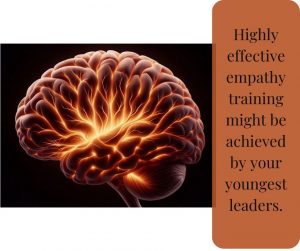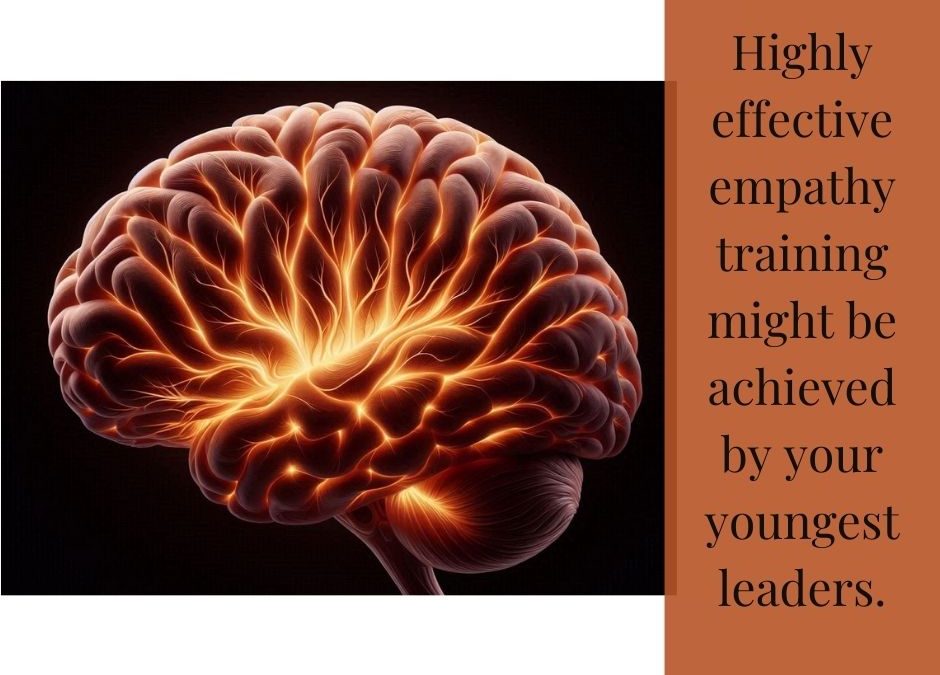Our propensity for emotional intelligence changes through life, but not necessarily in the way you would assume. Yes, your quality and quantity of empathy evolve through your social and pain-related experiences throughout life, but that is not the only factor.
The surprising outcome of recent research from the University of Kent is that young adults (20-40 years old) show the strongest empathic responses to others in physical or social pain.
When organizations focus on building emotional intelligence for their leaders and teams, they should consider encouraging young leaders to take charge.
Researchers measured brain activity while participants viewed painful situations, finding that empathy responses develop with age but peak in young adulthood.
.
Emotional intelligence, powered by genuine empathy, transforms teams into unstoppable forces that motivate and support each other.
hashtagHighPerformance hashtagNeuroscience hashtagBehavioralNeuroscience hashtagEmotionalIntell

neuroscience of empathy


Recent Comments